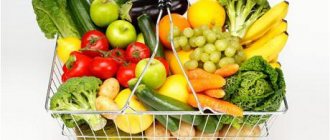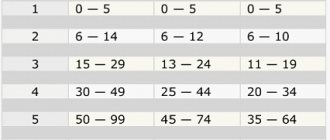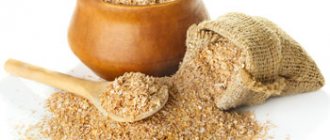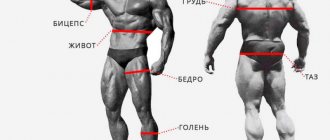What is a breakdown?
Diet disruption refers to the consumption of prohibited foods, excess caloric intake and other violations of the chosen diet. The breakdown can be one-time or prolonged. In the first case, it will have little effect on the result, and in the second, the body may begin to gain weight at a faster rate than before the dietary restrictions.
There are people with steely willpower who can only eat rice, chicken, buckwheat every day and will not look towards other foods until they reach their goal. But usually such people do not have the problem of excess weight.
The main cause of the breakdown is an imbalance of ghrelin (the hunger hormone) and leptin (the satiety hormone), which does not arise from real hunger, but from psychological attitudes towards limiting nutrition.
The body always tries to compensate for what it considers a threat to life and performance. As soon as you sharply reduce calories or limit your diet, the brain sends a signal to all systems that hunger has begun and it is time to store energy (read: fats) in case of survival under conditions of food restriction.
How it works: When you decide to lose weight, ghrelin jumps to levels that are similar to real fasting, so you immediately want to not only eat something, but spread chocolate spread on bread, put bacon on top and wash it all down with a liter of soda. It is difficult to cope with such a hormonal signal. In addition, those who regularly try different diets have impaired leptin resistance: you simply do not feel full when you already have enough to eat.
To reduce the likelihood of a breakdown, do not set large restrictions, fit treats into the selected calorie content
There are many additional reasons for a breakdown: physiological, psychological, social. The most common:
- CNS fatigue and stress . The release of cortisol (the stress hormone) requires the body to increase dopamine or serotonin to balance hormonal levels.
- Basic instincts and the usual reward system . If you are used to pampering yourself with sweets or high-calorie foods after achieving a goal or during a period of depression, then even on a diet you will unconsciously crave this.
- Wrong diet . A monotonous menu consisting of tasteless or unusual products will inevitably lead to breakdown.
- Water mode . Dehydration stimulates appetite. If you don't drink at least 2 liters of plain water a day while dieting, you're bound to eat something harmful. Moreover, the body will want water, not food, but these signals are similar and we have difficulty distinguishing them.
- Wrong diet . If you overeat in the morning, thinking that in the evening you will just drink a glass of kefir, then the likelihood of a breakdown increases. Try to distribute your meals evenly throughout the day.
Another common cause of failure is incorrect goal setting. If you want to lose 40 kilograms in 2 months while on a buckwheat diet, you will quickly become disappointed in your goal and return to your previous diet.
Why do you want carbohydrates?
shutterstock.com
At various times, it was fashionable to go on diets that excluded proteins, fats or carbohydrates. In the late 90s and early 2000s, those losing weight were afraid of fat: a huge number of low-fat products appeared. Then the era of protein began and protein diets became a priority. Nowadays, most people prioritize fats and switch to a keto diet. In parallel, most often people suffer from carbohydrate addiction: they have a weakness for flour and sweets or, conversely, are afraid of pasta or bread.
Carbohydrates are the main source of energy, they are divided into:
- complex: found in grains, legumes, vegetables, nuts. They promote digestion, provide a feeling of fullness for a long time;
- simple: found in milk, fruits, some starchy vegetables, baked goods, honey, sugar. They have a simpler structure, are quickly processed and sharply raise blood sugar levels, give a surge of energy and activate the joy hormone - serotonin. The pleasure from such carbohydrates does not last long: after a while, a sharp drop in blood sugar occurs, fatigue, drowsiness, apathy and unbearable hunger appear, and a great desire to eat sweets again, although the previous portion was half an hour ago.
shutterstock.com
We often crave sweets because we cannot control certain processes in the body. When sugar enters the blood, the pancreas triggers the production of insulin to control blood glucose levels. Under the influence of insulin, the production of leptin, which regulates energy metabolism, decreases. A person loses control over the feeling of satiety: it seems that we cannot get enough and eat more than we should. At the same time, glucose is absorbed by the body very quickly, and the levels of dopamine and serotonin rapidly drop. In an effort to regain our mood and strength, we again reach for sweets. This process develops into carbohydrate addiction.
Is it possible to avoid breakdowns?
If you decide to start proper and long-term weight loss, and then maintain the weight, then you need to be prepared for the fact that there will most likely be breakdowns during this process - both in nutrition and in training. The important thing is not whether you relapse, but how quickly you can return to your new lifestyle.
Stop the relapse at the very beginning - enjoy the chosen product, return to the chosen diet
To not give up
Diet for girls is one of the most effective ways to correct the shortcomings of problem areas. You shouldn’t give up when you have a breakdown, you just need to regain your motivation. Looking at photos of beautiful and slender girls who you want to be like will help with this. Imagine going out to the beach with a beautiful figure and taking gorgeous photos that you won’t be ashamed to put on your avatar. How surprised will all your friends be when they see you slim and prettier. You will hear the phrase “Girl, can I meet you” much more often.
It is important to remember that stopped weight may be a companion to menstruation or muscle gain. Continue to eat right and he will definitely get off the ground.
Life after a relapse: 10 steps that will get you back on a diet
- Don't beat yourself up. Forget the word “relapse”: you shouldn’t associate eating disorders with feelings of guilt or great loss. If you did buy a pie with jam or a chocolate bar and are ready to eat it now, just tell yourself: “I’m doing this consciously, I’ll get the most out of it and immediately return to the right habits.”
- Don't wait until tomorrow to start again. Don't feel like one breakdown has to ruin your whole day. One breakdown is one meal, there is no need to stretch it out and increase the caloric content of the diet additionally.
- Don't overeat. One failure – one dish, maximum dish + small dessert. There is no need to set the table and celebrate a break in the diet.
- Don't think about food. Most breakdowns for psychological reasons occur due to boredom or stress. You should always be doing something, and this activity should be enjoyable. Find a hobby, change jobs, read more or sign up for some courses.
- Find a new source of pleasure . If you are trying to improve your mood with sweets, pizza or rolls, then you need to find a new source of dopamine. This could be sports, dancing, spa treatments or handicrafts.
- Get enough sleep . Some people need 10 hours of sleep, while others need 6. If you don’t get enough sleep for two days in a row, cortisol (the stress hormone) will begin to enter your bloodstream, which will force you to break your diet.
- Don't exercise on an empty stomach . The mechanism here is similar to the mechanism of a breakdown after dietary restrictions: training - the body has a feeling of beginning hunger - release of ghrelin - breakdown.
- Have breakfast right . If you indulge in sweets or fatty foods in the evening, it means you are starting your day wrong. Make your breakfast more filling by trying different dishes.
- Don't keep unhealthy foods at home. This is difficult if you live with other people. But you can take advantage of the delivery of healthy food from Grow Food in the desired calorie range.
- Leave your favorite foods in your diet . If you dream of sweets, don’t deny yourself the right desserts; If you can’t live without bread, add a couple of pieces of black, gray or bran bread to your menu, but don’t forget to include this product in your daily caloric intake.
Do an intense workout
There is a great option for working off the calories you eat - training. Go to the gym, do gymnastics at home, or go for a morning run. Any of the options will do, the main thing is to burn the accumulated calories. Intensive training will not only help you get rid of extra pounds, but will also smooth out pangs of conscience. But you shouldn’t push yourself, you just need to study longer than usual.
Reward yourself. A great incentive would be a gift for every kilogram you lose. Keep a big goal in mind and don’t let minor setbacks put an end to it. If you have embarked on the path of healthy eating, then try not to turn away from it.
How can Grow Food help you?
Grow Food delivery offers several diet options that are consistent in calorie content and nutritional value and at the same time are made up of delicious and varied meat dishes, desserts, salads, and unusual side dishes.
It’s hard to go wrong, even in the Super Fit line for 1000 calories - four meals, including cottage cheese, chocolate pancakes with cherry jam, and nicoise salad. At the initial stages of losing weight, such variety will be an excellent help and will help you understand that losing weight can be tasty, satisfying and without strict restrictions in the choice of products.
Is it necessary to lose weight at all? Why is obesity dangerous?
Both sudden weight loss and obesity are dangerous for a person, so the phrase: “Why do you need to lose weight” is not relevant for everyone.
- The heart is the first to suffer when you are overweight: as body weight increases, it must supply much more space with blood, which causes the walls of the organ to swell and become deformed, and the pressure increases.
- The next organ that bears a heavy load is the liver, which simply stops coping with fat.
- The entire digestive system works in emergency mode. If a person abuses food, he faces a serious risk of developing diseases such as: colitis, pancreatitis, gastritis with low acidity.
- The increased load on the joints and spine causes pain. A frequent companion to obesity is varicose veins in the legs.
- Obesity disrupts the production of the hormone thyroxine. This leads to disruption of the menstrual cycle in women and problems such as increased oiliness of hair and skin, acne.
To prevent these problems, you need to see a doctor and lose weight taking into account the characteristics of your own body, and not create new problems for yourself. Perhaps the course of treatment will not be as quick and pleasant as a chocolate diet, but it guarantees an excellent result without the risk of ending up in a hospital bed and operating table.
Endocrinologists at the Best Clinic medical center will help you cope with the problem of excess weight - undergo an examination and get specialist advice by making an appointment on the clinic’s website or by phone!
Think through your menu in advance
The next rule that will help you avoid breakdowns is purchasing groceries for a week in advance . Make food preparations, so you won’t have a headache wondering what you should take to work today, or what to have for dinner? If you have all the necessary products in your refrigerator, you can always prepare a healthy breakfast, lunch or dinner from them. The most important thing is to buy the RIGHT products, excluding harmful and unnecessary ones. By “the right foods” I mean sources of complex carbohydrates (cereals, cereals and wholemeal breads), proteins (lean poultry, beef, fish both fatty and lean, seafood, eggs) and fats (avocados, nuts, unrefined vegetable oils). Simple carbohydrates can also be present in your diet in the form of fruits and berries, and vegetables are a source of fiber.
Hide your scales
The current point follows from the previous point - don’t weigh yourself every day! This is a very big, gross, but nevertheless common mistake of everyone who wants to lose weight. By getting on the scale every day (and sometimes several times a day), you are again making the same mistake - you are fixated on losing weight. Relax, don't go crazy. Understand that you are not a balloon of air that can be deflated in a couple of seconds. Human kilograms disappear much more slowly than the air is released from the balloon. On average, with safe weight loss, you lose from 500 g to 1 kg per week. Expecting that you will lose 500 g per day is a utopia, so be patient and hide your scales. It's best to track your results by writing them down in your diary once a week, not more often. Doing this is definitely useful and necessary. This will give you confidence that you are doing everything right, as there will definitely be positive dynamics.











